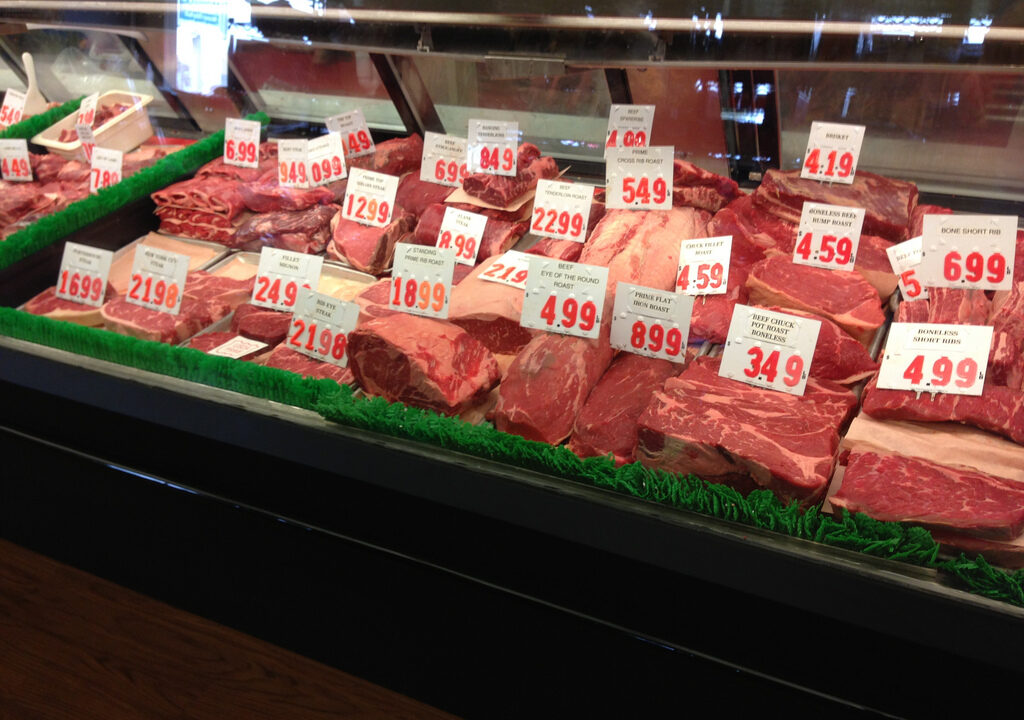A prominent economist has argued that consumer demands for cheap food places a “cap” on food prices – which in turn is passed down to the processor and the farmer.
Jim Power, an economist who has formally worked with Bank of Ireland, and who is currently working on a review of the beef sector on behalf of the Irish Farmers’ Association (IFA), made the comments on The Marian Finucane Show (hosted by Brendan O’Connor) yesterday, Sunday, September 8, on RTÉ Radio 1.
“The problem in the beef sector is that, at the top of the supply chain, you have the retailer; in the middle you have the processor; and then you have the farmer producing the primary product,” Power explained.
The cap on what the whole supply chain delivers is at the retail level. Retailers are obviously dealing with consumers who want cheap food, and that puts an immediate cap on the price the processors or farmers get.
Power expressed misgivings over this state of affairs.
“I think a cheap food policy is fundamentally wrong. It delivered BSE in the UK back in the 80s. If consumers want quality food, they should be prepared to pay for it,” the economist argued.
He also warned that “if Irish beef isn’t being produced and sold in Irish retailers, it’ll be brought in from oversees”.
Farmer share
During his interview on RTÉ, Power also cast doubt on the figures quoted by farmer protesters relating to what share of the retail price goes to the farmer.
The figures that the Beef Plan Movement came out with was that for every €10 that was spent, the farmer basically got 20%, and their argument was that the retailer got €5.10 for three days’ work, the processor got €2.90 for three days’ work, and the farmer got €2 for two or three years. These figures are not accurate actually.
According to Power, the farmer’s share is significantly higher.
“The retail price for beef is €8.97/kg. The equivalent farmgate price is €3.90/kg. However, the price paid to the farmer is a carcass including the bone, whereas what the retailer is selling doesn’t include the bone. So you have to adjust for what the farmer gets and what the retailer is selling,” Power argued.
“I would estimate that, on that basis, the farmer is getting somewhere between 40% and 50% of the retail price,” he suggested.
In looking at the whole beef sector, beef production full stop is being hit with a perfect storm at the moment, not just in Ireland, but all over Europe.
Power stressed that there are “massive headwinds” in the beef sector, including climate change; changes in consumer taste; competition in the protein sector from chicken and pork; and the EU-Mercosur trade agreement.
He added that there was a particular cohort of beef farmers who were not as efficient as other beef farmers, particularly in the west of the country, citing the quality of land there as a possible reason why.
“A lot of beef production in the west, which is an incredibly important part of rural economies, is pretty subsistent stuff, but makes a very strong social and economic contribution to the west of Ireland,” Power highlighted.
